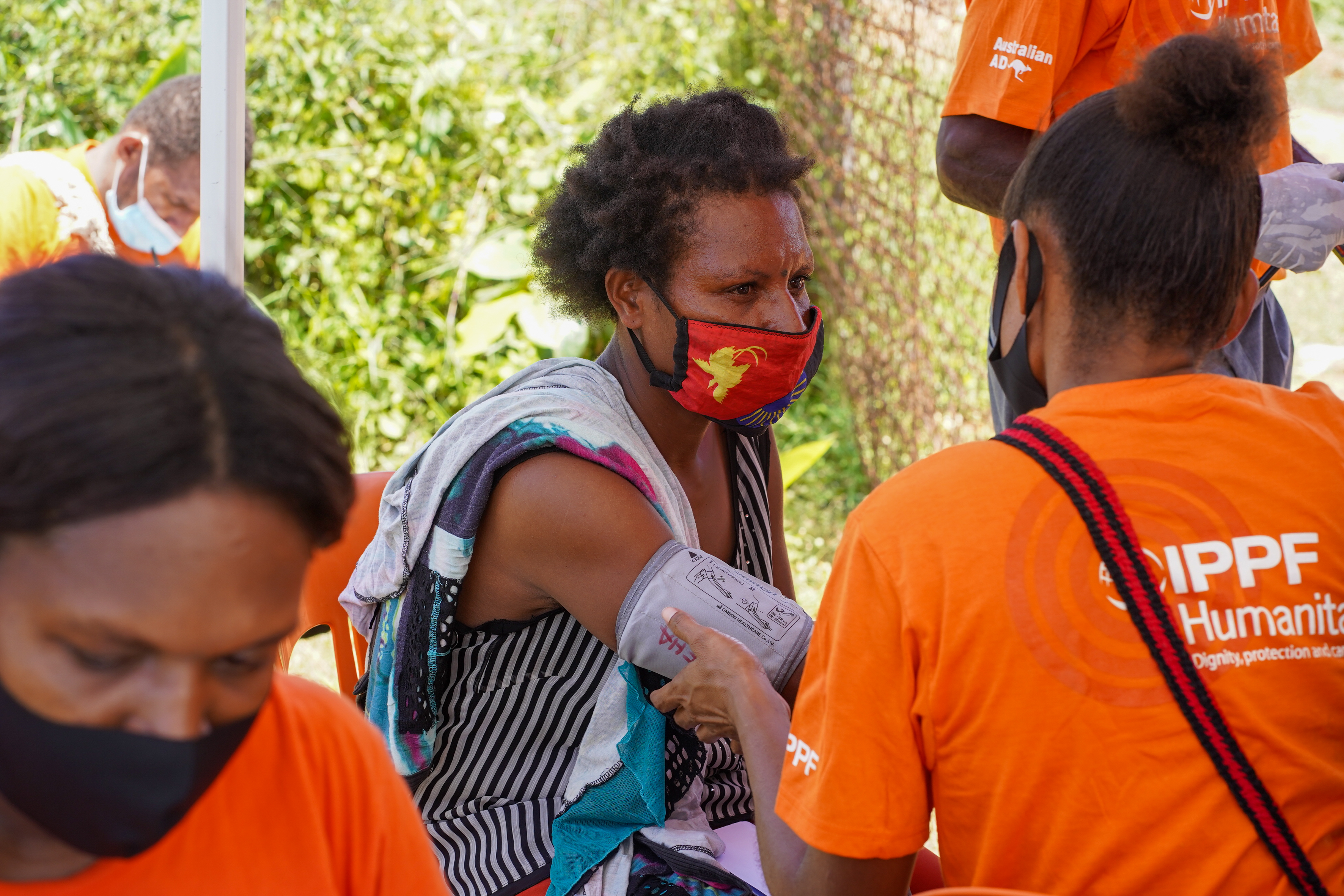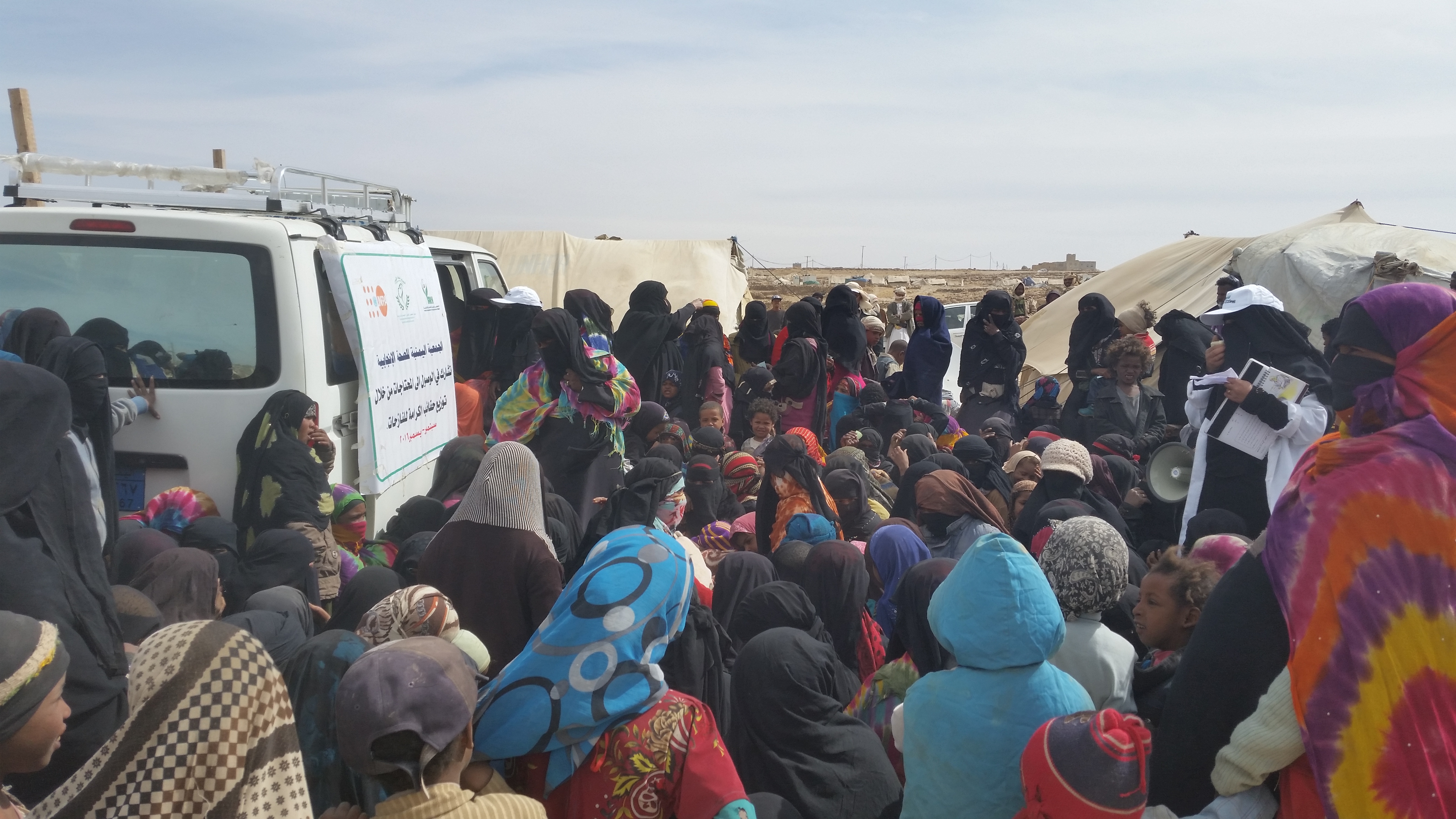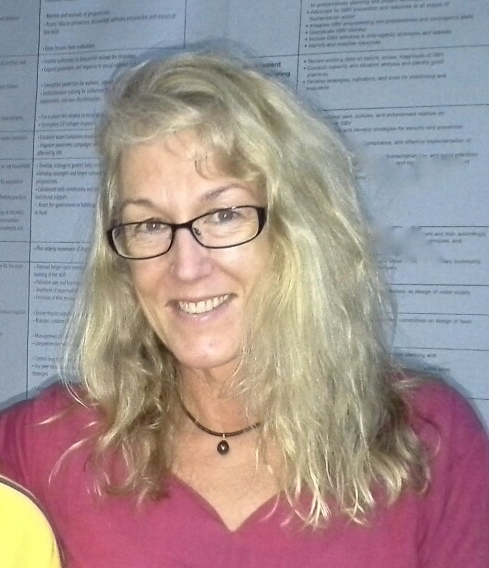
Robyn is IPPF's Deputy Director of Humanitarian
Articles by Robyn Drysdale

Alternative approaches to providing healthcare to women and girls in Papua New Guinea during COVID-19
Papua New Guinea (PNG), one of the most populated countries in the Pacific, also has one of the highest maternal death rates in the Asia and Pacific regions. The current downward trend of women accessing health facilities or having a skilled birth attendant present during childbirth is alarming. An estimation from 2018 showed that two out of three women in PNG had no access to contraceptives due to geographic, cultural, and economic barriers. These concerning estimates are expected to be further derailed as a result of the COVID-19 pandemic. The pandemic brought a direct life-threatening impact to PNG’s unprepared health care systems. Many people live with pre-existing vulnerabilities such as lack of access to basic services and healthcare facilities, or who live in natural disaster-prone areas. At the centre of this situation are vulnerable women and girls, especially those with little or no access to sexual and reproductive health and rights (SRHR) services, including contraception - a vital health component that is often deprioritised in crisis settings. Against this backdrop, the International Planned Parenthood Federation (IPPF) is currently supporting the Papua New Guinea Family Health Association (PNGFHA) to extend essential SRH services from its eight static clinics in hard-to-reach communities via the mobile clinics outreach program. The main objective of this response is to mitigate the impact of COVID-19 on mortality and morbidity due to adverse SRH conditions. This will include the delivery of crucial Minimal Initial Service Package (MISP) services; the continuation of comprehensive SRH services; the provision of public health information to communities; and COVID-19 infection prevention and control education. Funded by the Australian government through the SPRINT program, the community outreach mobile clinics are working in 12 districts across four provinces including East New Britain, Eastern Highlands, Morobe, and National Capital District. The National Department of Health is the main coordinator, alongside provincial health authorities, UNFPA, health protection clusters and IPPF Humanitarian for PNGFHA. Throughout the pandemic, PNGFHA has continued operating its eight static clinics and it has set up an additional 12 mobile clinics since July 2020 with a total of 26 clinical and non-clinical staff. Access to sexual and reproductive health Accessibility is the key factor behind this initiative. 85% of the population is estimated to live in rural areas in PNG and have no or minimal form of public transportation to get to public health facilities. With government-imposed stay at home orders, many people are unable or reluctant to travel amid fears of becoming infected at the health facilities. Women at the Tuna Bay settlement outside of the capital, Port Moresby, have little access to health facilities within their local area. Many women like Vavine Kila fear for their own and their children’s health and wellbeing but are unable to access the healthcare they need due to the high cost of transportation. “We don’t normally get access to these services in our community,” said Vavine. “When we go out to other locations, sometimes we wait until late, and also it is expensive to travel up and down. It is very vital to bring the services into the community so our people can benefit from it, for the betterment of our children.” The PNGFHA’s eight mobile clinics across PNG cut down locals’ travelling and healthcare costs. These clinics also extend underserved communities’ access to SRH services including family planning services, contraception, immunisation, and other health treatments. Local and safe spaces Local, and primarily female, aid workers are at the core of this response to the COVID-19 pandemic. Christine Atu is one of the aid workers that joined PNGFHA from the PNG public healthcare system. She is working alongside youth apprentices like midwife Dalyn Maira at the mobile clinics. Their exchange of experience, expertise and insights into the local culture and context ensure the smooth delivery of essential service to the local communities.

Humanitarian crises are not temporary, nor are sexual and reproductive health needs
Women and girls are disproportionately affected in humanitarian crises and face multiple sexual and reproductive health challenges in these contexts. IPPF has been providing much needed support to vulnerable communities through our global federation of member associations, who provide contextualised, timely and tailored interventions drawing on local partners' knowledge and expertise. However, recent shifts in the global political landscape are concerning and threaten to undermine IPPF's mission and impact on the ground. We live in a time when crises, whether brought on by human causes or natural disaster, have displaced more people than at any point since the Second World War. The needs of those driven from their homes are not transitory. Refugees now find themselves facing impermanent conditions for an average of 20 years. They must resort to living in temporary shelters or makeshift accommodation, and their refugee status often leaves them ineligible to access public healthcare and education. The UN reports there are more than 125 million people worldwide in need of humanitarian assistance. Of those, a quarter are women and girls between the ages of 15 and 49. And one in five of these women and girls is likely to be pregnant. A woman who has been forced to flee is particularly vulnerable. More than 60% of maternal deaths take place in humanitarian and fragile contexts, according to the UN Population Fund (UNFPA). At least half of these women’s lives could easily be saved. And yet women and girls affected by humanitarian crises face other risks too. A breakdown in civil order following disasters consistently increases the occurrence of sexual violence, exposure to sexually transmitted infections including HIV, and unintended pregnancies. After the 2015 cyclone in the Pacific Island nation of Vanuatu, a counselling centre recorded a 300% spike in gender-based violence referrals. Likewise, a study with Syrian refugee women displaced by conflict found that more than 50% experienced reproductive tract infections, almost a third had experienced gender-based violence, and the majority had not sought medical care. IPPF is at the forefront of delivering life-saving services. Our sexual and reproductive health program in crisis and post-crisis situations (SPRINT), established in 2007 and supported by the Australian Government, has ensured access to essential sexual and reproductive health services for women, men and children in times of crisis. Under the banner of our new IPPF Humanitarian division, the SPRINT initiative is now part of a global movement that seeks to provide all those affected by crises worldwide with dignity, protection and care. As a federation of 142 locally-owned but globally connected member associations, IPPF has a unique model for providing these vital humanitarian services. Our focus on valuing local solutions means our responses are rapid and sustainable. We see it as vital to be on the ground before, during, and after crises. Member associations work to mitigate against sexual and reproductive health (SRH) issues ahead of a crisis to reduce negative impacts, and remain afterward to assist communities to recover and rebuild their lives. When Cyclone Winston struck Fiji in February last year, IPPF’s local member association, the Reproductive and Family Health Association of Fiji (RFHAF), was already preparing to mobilise teams of volunteers and health staff. Initially, sexual and reproductive health was not prioritised at a national level, thus the first challenge was to convince the Government of Fiji and lead agencies of the critical importance of including sexual and reproductive health issues in the response. With support from IPPF and SPRINT personnel, RFHAF successfully advocated with the government to include reproductive health concerns into the post-cyclone needs assessment, and supported the Government in carrying this assessment out. Coordination and collaboration was critical as the damage was across an extensive area on several islands. Working in partnership with the Ministry of Health (MoH), UNFPA, Red Cross Society and local non-government agencies, RFHAF provided SRH care to remote areas identified as being worst hit by the cyclone. Colleagues from SPRINT and RFHAF split into three teams, moving into the field simultaneously to conduct 37 mobile medical missions to reach women and girls, with vulnerable pregnant women and new mothers prioritised. Comprehensive follow up beyond the initial response post-cyclone was a particular challenge for an organisation of just 11 staff. To address this, RFHAF leveraged their existing partnership with the MoH to facilitate training and handover of SRH service provision to district nurses and sub-divisional health centres, once these facilities were again operational. The response in Fiji utilised the Minimum Initial Service Package for Reproductive Health, which IPPF helped to pioneer. Commonly referred to as ‘the MISP’, the package is a series of priority life-saving interventions that IPPF seek to implement as soon as possible following a crisis.









